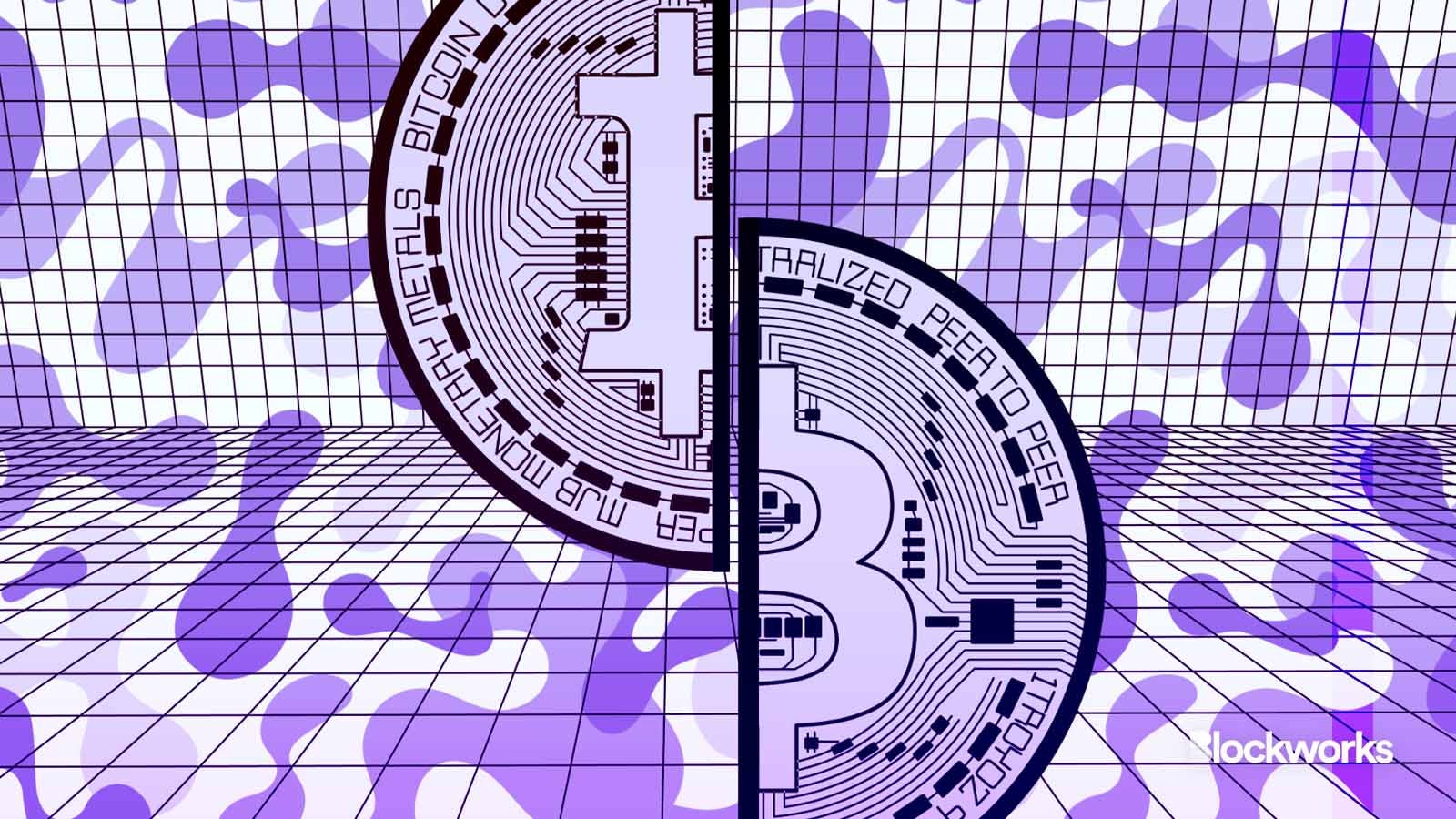How the halving could impact bitcoin’s price
The bitcoin halving is set to take place on April 19

Adobe Stock modified by Blockworks
The fourth Bitcoin halving is just around the corner.
The event happens every four years. This year’s event will cut block rewards to 3.215 bitcoin down from 6.25 bitcoin, a roughly 50% drop.
The halving is likely to take place on April 19, meaning there are roughly 8,600 bitcoin blocks until the event.
The previous halvings saw bitcoin hit highs, with bitcoin topping $1,000 following the 2012 halving and $20,000 after the 2016 halving.
The most recent halving, which took place in 2020, preceded bitcoin hitting its all-time high of $69,000.
But the jump in price didn’t happen overnight. In some cases it took months for bitcoin to climb to new highs, though that doesn’t mean that the events themselves haven’t historically been a catalyst for bull market momentum.
Keep in mind, however, that this is only the fourth event of its kind.
Read more: The next bitcoin halving is coming. Here’s what you need to know
The final bitcoin halving is estimated to occur in 2140, though the events are scheduled to occur every 210,000 blocks.
According to recently publicized emails from Satoshi — the creator of bitcoin — the “choice for the number of coins and distribution schedule was an educated guess,” in their own words.
“Time will tell, but historical data strongly suggests a significant increase over 18 months,” said Phil Harvey, CEO of Sabre56.
In early February, a Finder price prediction report on bitcoin’s price action believes that bitcoin (BTC) could peak at $77,000 by the end of 2024.
So far this year, bitcoin climbed over $50,000. The possibility of bitcoin climbing to new highs is due to several factors, according to the report.
“First, major companies and institutional investors [are] showing growing interest [in bitcoin, which] is likely to drive demand. Second, the approval of spot ETFs mak[es] [price exposure to bitcoin] more accessible than [it was in] previous market cycles,” said Kadan Stadelmann, chief technology officer of Komodo.
The halving, Stadelmann added, creates ”a scarcity that tends to increase its value.”
What’s different this time?
It’s important to note that this will also be the first halving with institutional interest following the approval of spot bitcoin ETFs in January.
To put the impact of bitcoin ETFs into perspective, K33 Research noted that “Bitcoin ETPs globally have seen a net 30-day inflow of 83,500 BTC over the past 30 days, equivalent to 3 months of BTC miner rewards at current rates.”
Harvey said that he believes the ETFs in the US could “add further stability to the industry as a whole.”
Read more: Bitcoin price tracking ahead of the past 2 halvings — now 3 months to go
“The halving will still be new to many and a post-halving market is ripe for many deals to be done. The US ETF should add robustness and maturity to the industry with less future volatility,” he continued.
Ryze Labs, in a recent market note, said that with the “unprecedented traditional financial influx via Bitcoin ETFs” paired with the halving, “our long-term bullish outlook remains firm.”
What experts think
“This backdrop offers a unique confluence of factors that could either propel Bitcoin to new heights or — who knows -– test its volatility in unforeseen ways,” Mikkel March, founder of ARK36, said.
March warned that the price expectations “shouldn’t be based solely on historical patterns of price surges pre- or post-halving, but also on the evolving landscape of cryptocurrency’s integration into traditional finance.”
Read more: What happens during the bitcoin halving?
Harvey believes that the halving could lead to the centralization of mining.
“We are witnessing the industrialisation of mining, but it is worth noting there are still numerous miners globally. As long as this continues, mining — and BTC — will stay decentralized, albeit among fewer players,” he said.
As Blockworks previously reported, some bitcoin miners could see some financial stress due to the decline in the rewards.
“Historically during past halvings, we did see an initial drawdown in hash, but miners can sustain themselves if they find lower power prices and/or have better equipment – with the latter option of course costing more capital,” analysts at BitOoda wrote in a note.
Valkyrie co-founder Steven McClurg previously told Blockworks that the bitcoin ETFs have led to interest in other bitcoin products offered by the asset management firm, including its bitcoin miners ETF, which trades under the ticker WGMI.
The ETF holds miners such as Marathon, CleanSpark, Cipher and Riot as well as stocks like Nvidia.
He explained that Valkyrie’s bitcoin miners ETF is “actively managed because there are going to be miners that don’t survive and there are going to be some that thrive in this environment. And, hopefully, we choose the right ones.”
Updated Feb. 23, 2024 at 1:54 pm ET: Clarified that the halving is likely to take place on April 19.
Get the news in your inbox. Explore Blockworks newsletters:
- The Breakdown: Decoding crypto and the markets. Daily.
- 0xResearch: Alpha in your inbox. Think like an analyst.






